Yarning: How might Indigenous ways weave a better world?
Get Started for FREE
Sign up with Facebook Sign up with X
I don't have a Facebook or a X account

| Tags |
|---|
 Your new post is loading... Your new post is loading...
 Your new post is loading... Your new post is loading...
Vertical development is becoming more well-known and talked about within leadership development. I’ve heard various people talking about the wonders and benefits and others talking about all the risks and dangers. Which is true? After using vertical development tools and models for 10 years, I thought I'd share the 7 most important things I’ve learned.
Andrew Gerkens's insight:
Nick Petrie shares the 7 most important things he has learned about vertical development. 1. Leaders find it helpful on many levels 2. It is just a model: it is not ‘the answer’ or the only way of understanding humans. 3. Hold the stages lightly 4. You are too complex for any assessment to capture 5. You are not at a stage 6. Higher stages are not ‘better’ 7. There are heroes at all stages
Many workers are feeling intense distress, and quitting in droves. The root cause might be something else: moral injury.
Andrew Gerkens's insight:
Still processing this article. Lots to think about and notes to follow...
Andrew Gerkens's insight:
In these three videos, Sue Borchardt with Michael Muthukrishna explore cultural evolution and how we can build the capacity to respond to the (adaptive) challenges of our time:
One of the most significant changes made to the ADF in recent times was about who could work, not how they did so.
Andrew Gerkens's insight:
This article is a fantastic exploration of organisational culture, including how culture often gets blamed and how large scale reform programs offer a visible (marketable), but largely superficial response.
The article explores the opportunity for smaller and more localised interventions. I particularly enjoyed the exploration of : network analysis and structural aspects of culture (buildings/infrastructure, policies, procedures) that support underlying power structures. These highlight the importance of social and structural levers for evolving culture, in addition to the Individual Transformation lever, which includes values, behaviours and competencies and is often the soul focus..
|

|
Scooped by Andrew Gerkens |
A key question inherent in any systems innovation initiative is how to scale to a level where we are affecting the whole system. Our world is populated with many small initiatives but as yet we have not realized meaningful large-scale systems change in many areas where it is most needed. The question of how we go from a system-changing idea to the re-organizing of a whole system is still unanswered. This guide is designed to help you think about scaling system changing ideas through a nonlinear
'A key question inherent in any systems innovation initiative is how to scale to a level where we are affecting the whole system. Our world is populated with many small initiatives but as yet we have not realized meaningful large-scale systems change in many areas where it is most needed. The question of how we go from a system-changing idea to the re-organizing of a whole system is still unanswered. This guide is designed to help you think about scaling system changing ideas through a nonlinear approach that leverages the power of connectivity, feedback loops, and network effects to work with complexity; to scale faster and farther while remaining agile'.

|
Scooped by Andrew Gerkens |
Change Management Podcast | The Inner Game Of Change podcast
I was invited by Ali Juma to present on the 'Inner Game of Change' podcast. During this 45 minute podcast, we discuss a range of topics around culture, including capacity building, cultural evolution and considerations for leaders and practitioners.

|
Scooped by Andrew Gerkens |
A great overview of the Subject/Object Interview process. If you want to read further, I suggest purchasing Jennifer's fantastic book, 'Changing on the Job' or if you want to develop your leadership/coaching practice, consider joining the Growth Edge Coaching program.
This draft chapter explores the intricacies of the Subject-Object Interview, the measure of Robert Kegan’s theory of adult development and thus one of the primary means of assessing self-authorship. The author focuses on using the interview as an intervention to assist adults in moving toward self-authorship and the dilemmas involved in doing so.

|
Scooped by Andrew Gerkens |
If you are in geo1, call us today! Everything is connected… Picture by MC Esher.
A series of articles (links to article 2 and 3 below) exploring systems thinking by Roland Flemm:
1. What is Systems Thinking and why should I care
2. Complex Adaptive Systems (dcme.nu)
The world is complex. If we don't seek to understand the system as a whole, and focus instead on optimising the parts, our results will be limited at best. We will also be ineffective at responding to complex problems (adaptive challenges). When we look at the whole system, we find and can harness connections and improve the whole system.

|
Scooped by Andrew Gerkens |
This is a fantastic exploration of of adult development and includes links to a range of resources for exploring further

|
Scooped by Andrew Gerkens |
I am pleased to announce the release of my latest whitepaper Lessons in Vertical Development. We are living in unprecedented times. There is a global pandemic, unstable economies, stay at home orders, virtual workplaces, and an unknown future. We used to say that the world was VUCA, and that was before the pandemic sho
In this White paper, Nick Petrie explores the concept of vertical development and some of the insights he has gained from his experiences supporting leaders to build their capacity to lead through complexity.
A key idea for me is the situational approach, with great leaders having range; being able to flex between developmental stages, so they can respond to the needs of the role/task.
Nick also talks about what can occur if their is misalignment between organisational stage of cultural evolution, role complexity and the individual's stage of development.

|
Scooped by Andrew Gerkens |
There are three primary conditions that when combined in different ways, produce different flavors of vertical leadership development. The three primary conditions are: 1. Heat Experiences (The What) The leader faces a complex situation that disrupts and disorients their habitual way of thinking. The leader discovers t
A brief overview of the three conditions that enable vertical development.
I've been fortunate over the last two years to have worked closely with a leadership team. When the team formed, the Executive GM reinforced that the primary responsibility of team members was their role on the leadership team. Their job title (technical role) was secondary to the work they would do on the leadership team, being to build the capacity of the function to deliver, adapt and grow. This was a powerful platform.
Rather than a separate leadership program, we have used the work of the team, as the foundation for vertical development. Learning as part of Working. I introduced the concept of heat and the team came up with the idea of 'hard chats' as a simple way to open up tough conversations to enable/support productive discomfort and encourage multiple perspectives. I have used a range of adaptive facilitation techniques as well - Case in Point, Balcony and Dancefloor (or for the Australian/NZ context, Coach's Box and Playing Field), Immunity To Change and in the moment reflection (i.e. what did we observe in that discussion).
We certainly haven't nailed it, but it has been rewarding to see development really be the work of the team, rather than something separate/extra; developing and implementing strategy, responding to business challenges, diagnosing the culture and implementing a plan for building capacity (evolving culture). There has been a significant shift in the way the team operates.
I have also had to be conscious of how I need to show up, if, when and how to intervene and to hold the work lightly. This process has been as much about my development as it has been the team's.

|
Scooped by Andrew Gerkens |
Vertical Leadership Development Case Studies
Passcode: 9&=8DAZI
Two case studies exploring how Tennis Australia and Aurecon have used adult (vertical) development to support leadership development

|
Scooped by Andrew Gerkens |
Many constructive developmental theorists have argued that resolution of the adaptive challenges now faced by organisations, communities and globally, requires leadership from people who
have reached Loevinger’s post-conventional stages of adult psychological development.
This paper by Nicola Caroline (Niki) Vincent explores three studies that contribute to a more sophisticated understanding of the factors that may facilitate or inhibit consciousness development (particularly to post-conventional stages). Implications for the design of, and selection of participants for, leadership programs to promote such development are discussed, and future research directions are indicated.

|
Scooped by Andrew Gerkens |
Transformation through Vertical Leadership Culture (VLC): Double your probability of success - 1 Transformation Practice, 10 Transformation Guides, 20 Quick Tools, 30 Years Action Research, 40 Articles, Papers, & Books, and 50 Executive Teams & Organizations
An incredible resource to support vertical leadership development.

|
Scooped by Andrew Gerkens |
This 2min video provides a wonderful introduction to the Cynefin Framework. I love the 3D aspects and how they really give a strong sense of the cliff of chaos and the ecosystems of complexity.

|
Scooped by Andrew Gerkens |
Sensemaking: The process by which people give meaning to experience
This article explores the difference between sense and meaning making. From the article:
Meaning-making and sense-making are often used synonymously, but they are different. Sense-making is about making sense of the external world, while meaning-making is about relating it to our inner world. Asking the question: “What does this situation mean to me?”
A simple way of looking at it is as follows. If sense-making asks, “What is going on?”, meaning-making asks, “What are the implications of what’s going on for me (or my family or my organization)?”

|
Scooped by Andrew Gerkens |
20 open-source guides for learning about Systems Innovation

|
Scooped by Andrew Gerkens |
In this session Siobhan busts the myths about workplace culture and gives you the four steps to accelerate this complex, adaptive change. This is a “must-see” session for HR professionals who are advising leaders about change and who are interested in how to make culture shifts happen faster, with less noise.
You might also like Building Culture in Times of Crisis | Siobhan McHale: https://youtu.be/kWL8gY6Q4-A
An organisational culture case study exploring organisational aspiration (espoused values) vs. lived behaviours (patterns). McHale walks through the process of diagnosing the culture and also provides an overview of her MAPP for understanding and evolving culture:
Mental Maps - What people Think and Feel. World views and meaning making
- Values, assumptions, expectations, feelings, beliefs, attitudes, needs, purpose
Actions - What people do. Behaviours
- Conduct, decisions, stories, symbols, messages, language, rituals
Processes - Reinforcing mechanisms. Ways that work gets controlled and rewarded
- Systems, structures, goals, rewards, processes, procedures, physical environment
Patterns - Ways of relating. Unwritten rules of engagement
- Agreements between the parts, co-created dynamics, mutual interactions

|
Scooped by Andrew Gerkens |
Thomas Tjapaltjarri and his family made headlines around the world in 1984. Having lived as hunter gatherers across the traditional lands of the Pintupi people around Lake Mackay in Western Australia, Thomas and his family, referred to as 'The Pintupi Nine', were the last indigenous group to have ma
I have written this article to share some curated resources to help people explore adult development, to share some of the ways I am being deliberately developmental along with how I am integrating adult development into my own work with leaders and organisations.

|
Scooped by Andrew Gerkens |
Overview of a leadership development program, that includes Immunity To Change and the Leadership Circle profile, to respond to adaptive challenges and support vertical development

|
Scooped by Andrew Gerkens |
'Culture ideally should enable the aspirations, strategy and purpose of an organisation', but only a few weeks ago, this quote from an article by Ray McLean from Leading Teams hit me hard. 'At times it seems we speak about culture as though it is a person – someone else to blame'.
The world is evolving and so too, must our organisations if they are to survive and thrive. This article is the first in a series sharing my experiences using cultural evolution to help leadership teams build the capacity of their organisations to deliver, adapt and grow.
It explores the Adaptive Cultures framework I have been exploring as part of the practitioner program and applying to my work.

|
Scooped by Andrew Gerkens |
Facilitating Emergence and Sensemaking in Organizations | by Sahana Chattopadhyay | Age of Emergence
The world today is undergoing massive upheavals and change — ecological, social, political, technological, demographic, and more. Organizations are not immune from the impact of these interconnected…
The organisation as a living system and the adaptive capacity required of leaders to facilitate (guide, support, enable) cultural evolution, so organisations are equipped to deliver, adapt and grow. Where do these concepts sit within you HR strategy? How are you evolving HR to build the capabilities to support cultural evolution in your organisation? A challenging article to help us consider how we can add real value to our organisations and the world.
The Adaptive Cultures framework, practitioner program and community have and continue to be an important part of guiding and supporting me to build my adaptive capacity and facilitation skills - https://lnkd.in/gtpU7ps

Re-scooping this under HR Capability/Role. I think it is critical that HR develop Cultural Evolution as a capability, so it can guide, support and enable the organisation to evolve. Building its own adaptive capacity is one of the biggest challenges and opportunities for HR. It is a difficult path, but one that offers significant returns, rewards and of course, growth.

|
Scooped by Andrew Gerkens |
Across these three articles, Jennifer Garvey-Berger shares her explorations of Diversity, Inclusion & Belonging. JGB is open about the reality of the challenges of confronting bias, limiting beliefs and assumptions - the inner work required for inclusive leaders to create the conditions for people to fiercely care for one another.
'Pat Wadors, the CHRO of ServiceNow, is credited with adding “belonging” to the Diversity & Inclusion (D&I) space. As she says, “D&I may capture your head, but belonging captures your heart'.
'Diversity is about having a wide mix of people in the room. Inclusion is about being sure that everyone there gets treated in ways that are helpful for them, no matter what their particular sets of needs might be. Belonging is the feeling that arises if a place actually has a culture that creates genuine space and care for differences'.



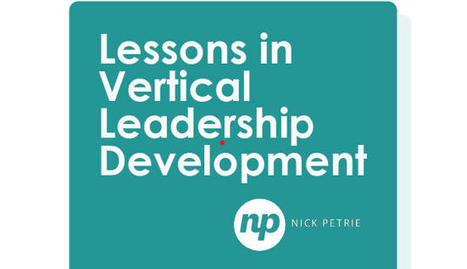

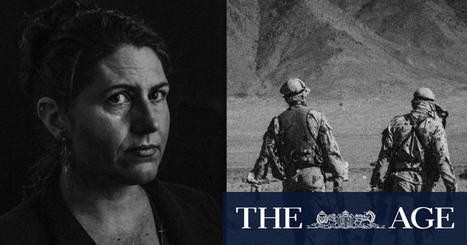
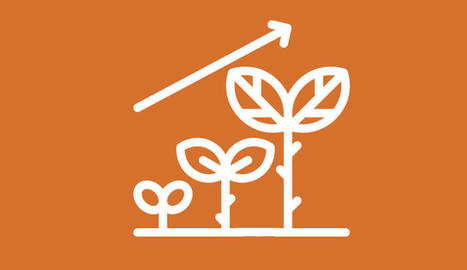
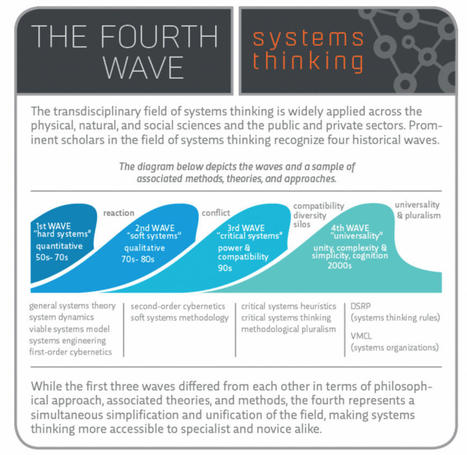

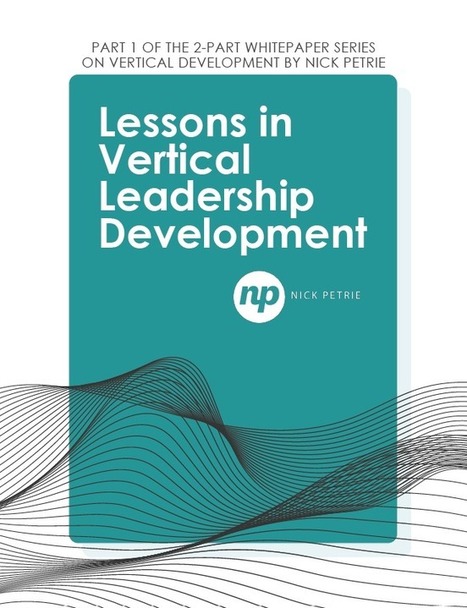
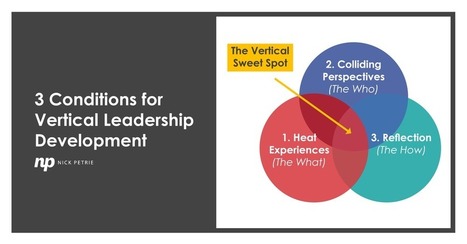


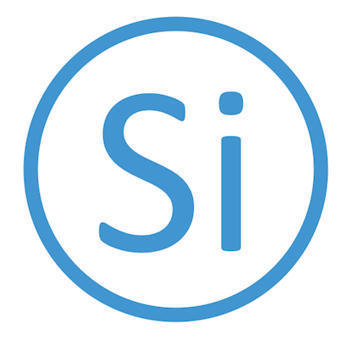



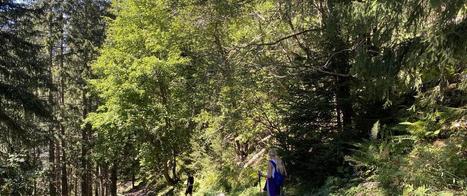





First Nation experiences, perspectives and processes have much to contribute to understanding, making sense and taking action in complexity. The first session’s thinkers are: Tyson Yunkaporta and Chels Marshall from the Indigenous Knowledge Systems Lab (Deakin University Australia), Dave Snowden and Beth Smith Welsh Cynefin Centre colleague (Wales). Together they challenge our assumptions about about knowledge sharing and co-creation and deepen our understanding as we learn through listening to their conversations. Be curious about new ideas and possibilities as you listen in on this, the first of many yarns and tune into the extraordinary value of Indigenous ways from Australia and Wales.
Additional yarns:
https://yarn2.cynefinaustralia.au/
https://yarn3.cynefinaustralia.au/
https://yarn4.cynefinaustralia.au/